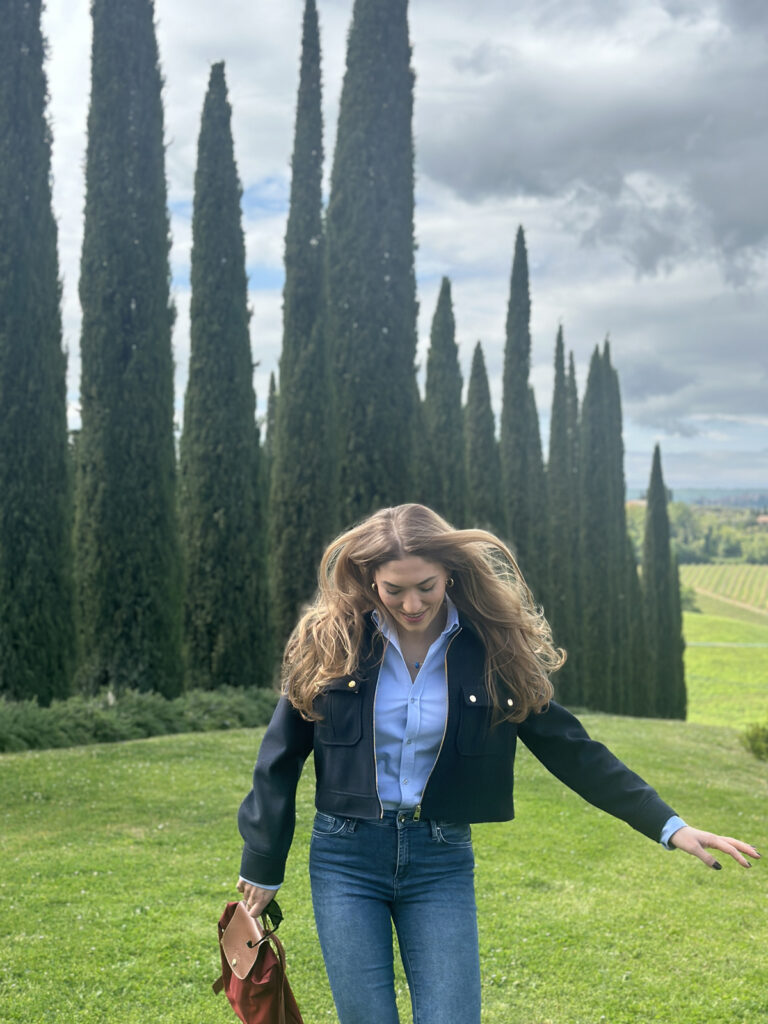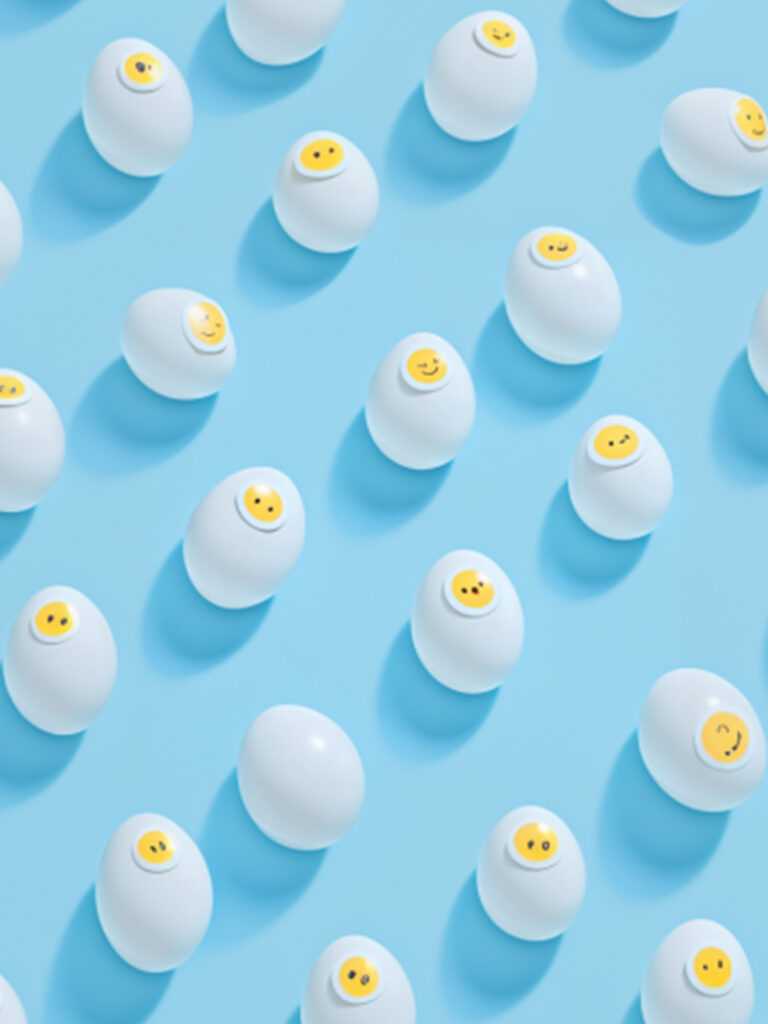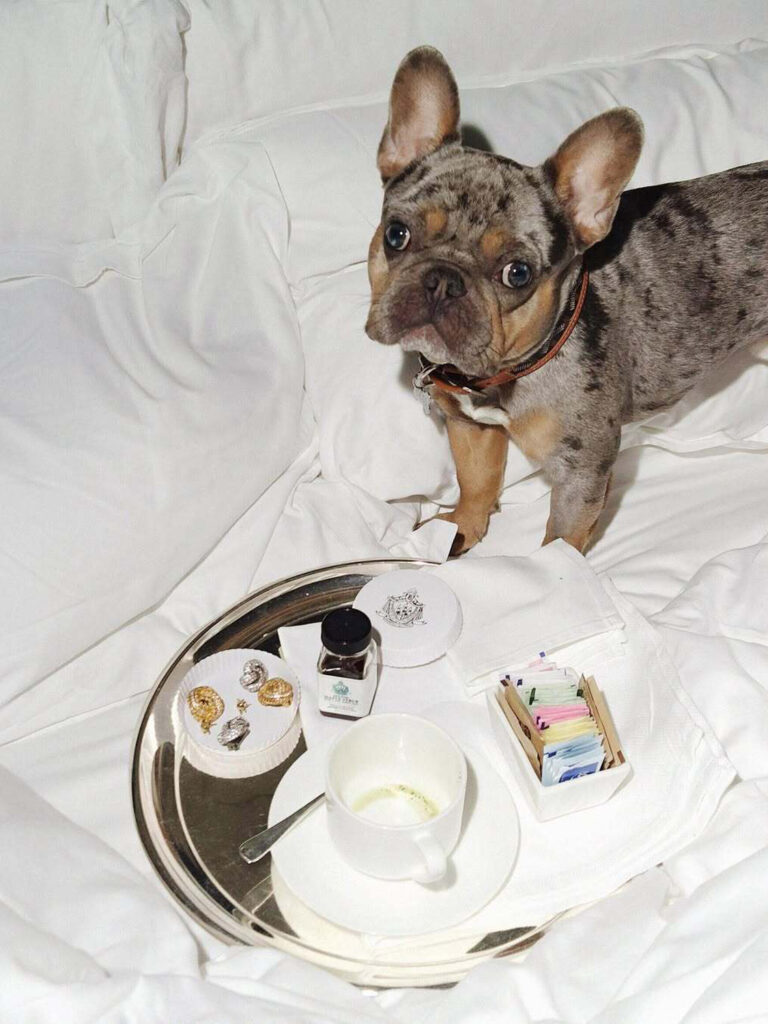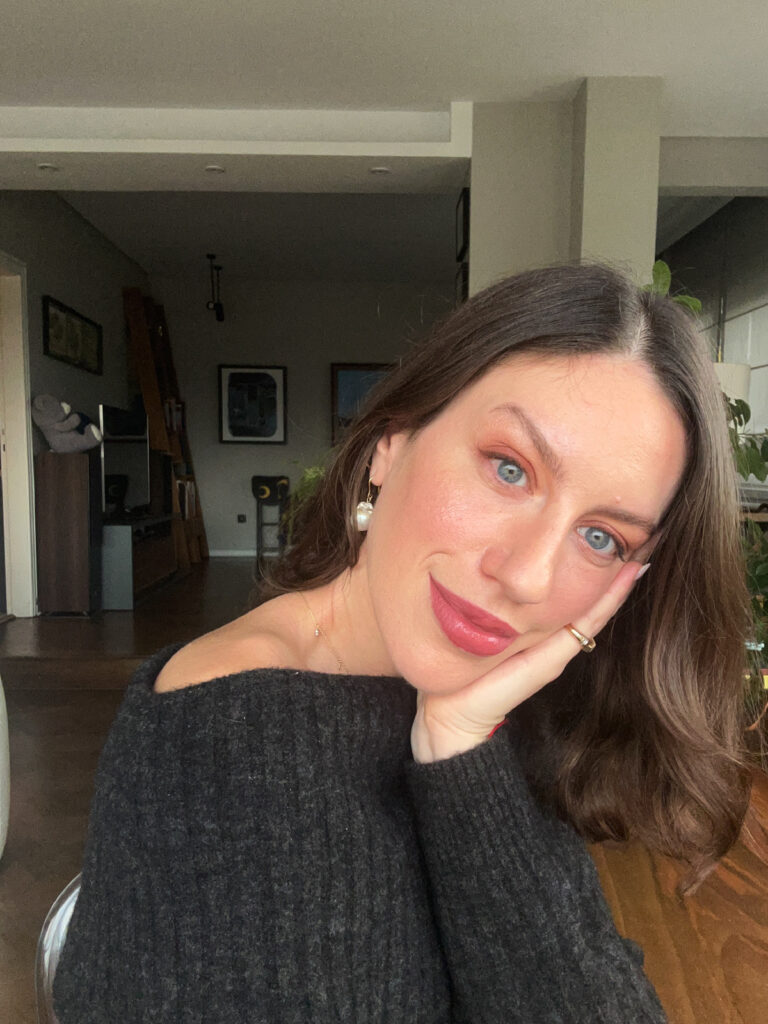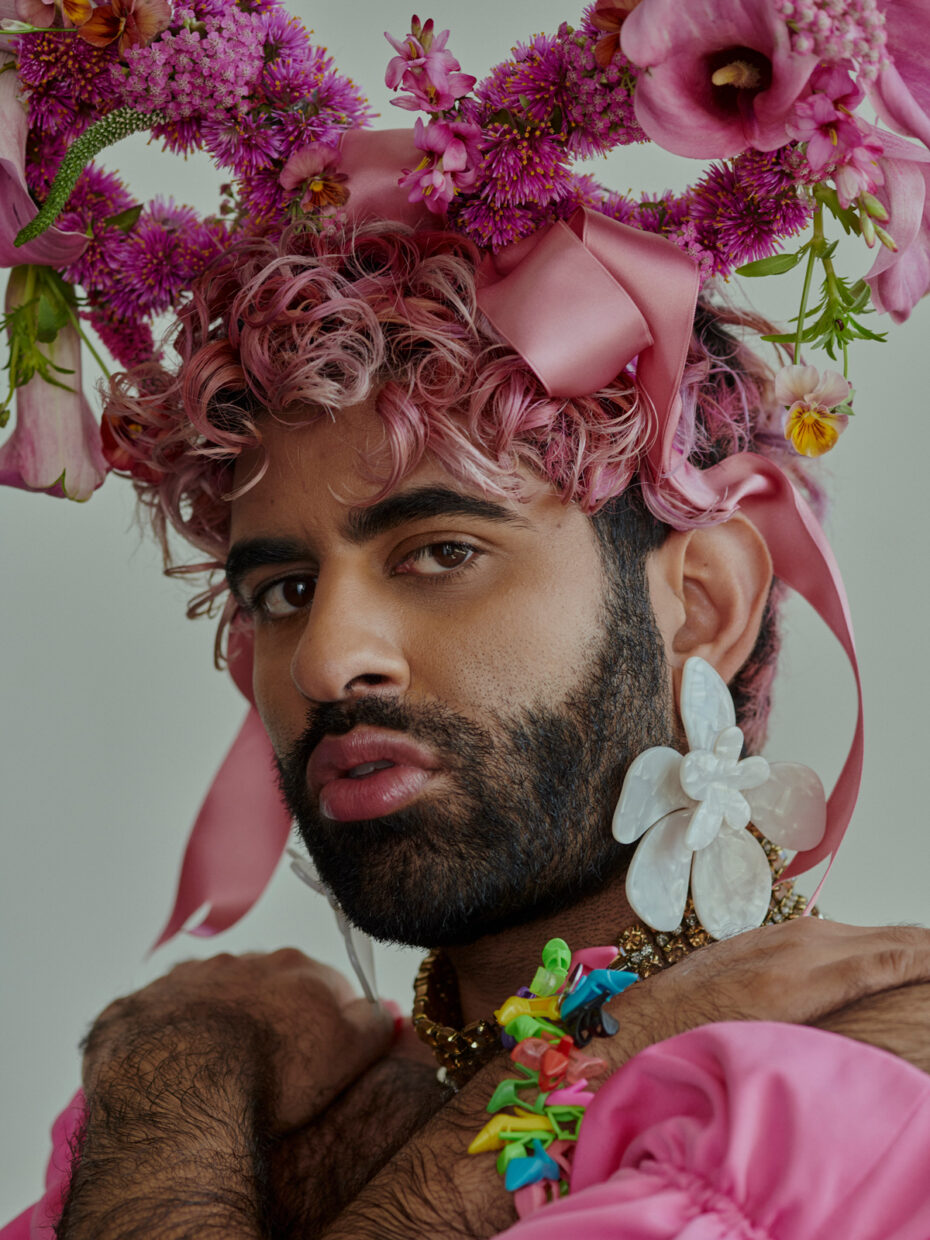
Photo: ALOK
Stories
Can ALOK Change The World?
The gender nonconforming author and public figure ALOK believes in the transformative power of self-expression and radical love.
Text Defne Sarıçetin
Alok Vaid-Menon is an author, public speaker, and activist, performing under the name ALOK. Their multi-disciplinary artistic approach delves into themes such as gender, race, trauma, belonging and the human condition. They are gender nonconforming and trans feminine and use the singular they/third person pronouns. Gender nonconforming is a term referring to people who do not follow other people’s ideas or stereotypes about how they should look, or act based on the female or male sex they were assigned at birth.
As a child of immigrant parents from Malaysia and India, ALOK grew up being bullied for their race and gender expression in Texas. These formative experiences of being harassed for who they are led to their art practice. They have written books, including Beyond the Gender Binary and created #DeGenderFashion; an initiative to degender fashion and beauty industries. Alok highlights that “degendering” does not mean erasing anyone’s right to be men and women. Neither is gender neutrality requesting everyone to be non-binary, but rather creating a more inclusive frame for everyone. They advocate for freedom from constraining gender norms, bodily diversity, and a society that operates on radical compassion and love for ourselves and others.
What does self-expression and authenticity mean to you?
A felt and rooted sense of alignment of mind, body and spirit. Presence. Being unabashedly myself – even when and where it hurts.
For someone who may not have read extensively or even heard about the terms “gender binary” or “gender nonconformity”, how would you explain how societal conditioning might hurt not just marginalized people but everyone?
We grow up in societies that tell us who we should be without asking us who we want to become. We are told that we will only be loved if we perform the version of ourselves that other people need us to be. We spend our entire lives shapeshifting and compartmentalizing ourselves to be understood because we are told that we have to be understood to be loved.
We are made to feel like our ability to be loved is linked to our doing (performing a certain role, looking a certain way, etc.). This creates an internal disconnect between who we are and who we have to perform to be – a true self hidden in the shadow of every word we utter, every gesture we make. This separation of our true selves from our public selves takes a dire toll throughout our lives. We try everything we can to numb ourselves from the pain of it: addiction, distracting ourselves. But our bodies know the bluff – we become stressed, ill, depressed, resentful, hateful, bitter. This hatred makes our nervous systems hyperactive, contributing to premature death.
I know that the people who discriminate against us are also suffering. People who are secure, people who are at peace, do not default into hatred. Freedom doesn’t just look like safety and acceptance for LGBTQ people; it seems like the creation of a society of love where everyone is relaxed and free of resentment.
Could you share one experience that profoundly shifted the way you view yourself?
Walking down the street in a dress taught me that other people’s hostility toward me wasn’t about me; it was about their insecurities and shame. I knew this intellectually before, but I finally felt it deeply in my body. What resulted from this realization was intense joy, a new lease on life. Infinite possibility. My body, my life, was my own.
How do you think we might move forward in accepting and championing other ways to be for all of us, where patriarchy, oppression, and societal conditioning is so deeply ingrained and internalized?
We can’t think out of our conditioning; we must feel our way out of it. That takes time and practice. All of us have deeply ingrained and internalized patriarchal conditioning. That doesn’t make us bad people; it makes us people. The work, then, is how do we begin to rehumanize ourselves and one another. We do this by planting curiosity in all the places where we have judgment. Notice the things that make you clench up, that inspire bouts of envy, nervousness, and disgust. See these experiences as teachers. Breathe, and return. What is coming up for me here? There is often unarticulated grief, repressed pain that festers behind judgment and malice. And that pain is seeking witnesses. Witness it. Feel the things you weren’t allowed to feel.
I also loved what you said about the messiness of the human condition, and your stance of radical mercy and love, of compassion over comprehension. Would you mind expanding a bit on that?
War and violence haven’t worked. We try the same strategies repeatedly expecting different results. Why not try something else? Why not try love?
I believe that humans are inherently good. And we depart from that fundamental goodness because we are traumatized. Trauma isn’t just episodic, it’s also atmospheric. It’s the cultures that we grow up in. It’s diffused, like a pesticide. It contaminates our goodness. Shame is the most vital organ in this society and the most lethal to our humanity. Shame sculpts us into strangers from one another, and from ourselves. I have compassion for others because I too heeded the false promise of hatred and resentment to free me from shame. It didn’t work — it just brought me more shame. The only thing that helped me keep going, helped me stay afloat in a world trying to drag me down was love. Love liberates us from shame.
When I see people act in violent ways I know they are doing so from fear and shame, not love. I know that they think this behavior will insulate them from their pain. And I know it won’t. I see myself in them, and I remember that love was the only way that I got through. So I love them, too.
What are your thoughts on degendering beauty?
Beauty and fashion industries are fueled by the lie that there are certain products, certain aesthetics, certain ways of being exclusively for “women” and “men.” This is not only factually incorrect, it’s boring. Degendering beauty means that people can decide what they want to wear, what products they want to use and how they want to present themselves in the world. Degendering beauty is not about creating a separate “degendered” collection. It’s about removing gender labeling from all products to reflect how people of all genders already use them. In other words – degendering beauty is about being honest. Which means – degendering beauty is about love.
Would you mind sharing what you do to support your mental health and well-being, or things (routines, rituals, a thought or feeling) that help you and might help others?
I keep a daily journal where I can synthesize what I do, think, and feel every day. It’s a ritual that continually helps me return to myself. I am constantly in conversation with my friends across the world to feel connected, like I’m part of something greater than myself. I experience as much art as I can: books, podcasts, poems, theater, comedy. Art sustains me, and gives me hope.
At Wonderflaw, we champion what are deemed as “flaws”. What is your favourite flaw?
I have a…let’s say “unique” way of saying bye. I just kind of leave without the customary pomp and circumstance associated with departures. I hang up, say “bye!” and turn in the opposite direction. As someone whose job it is to find the words for things, I can’t find the adequate words for goodbye. It feels so cruel, insufficient, callous: “bye.” Yikes. But the positive spin here is: I’m in search of another word, another way, to communicate the feeling of grief of parting. Until then, I’m out!
You are obviously exceptionally well-articulated and educated. I believe there are many well-meaning and heart-led people who might not fully comprehend what you’re talking about, or they are learning, perhaps struggling to articulate. Without having the vocabulary or say, all the knowledge of historical context, how would you suggest people engage with those who think differently in a constructive way?
The majority of people are well-meaning. And this has been my experience in person. The internet isn’t a suitable place for that because it’s driven by algorithms that rely on conflict and division. One-on-one long walks, long dinners, and slow time are alternative ecologies for meaningful exchange. Here we can get to the heart of the matter: the emotions, fears, and anxieties that lurk beneath the surface. The things that we can’t reason our way out of.


